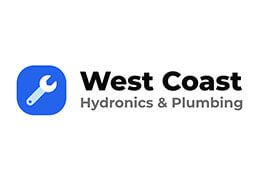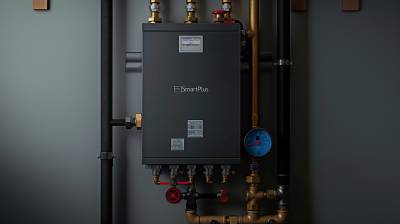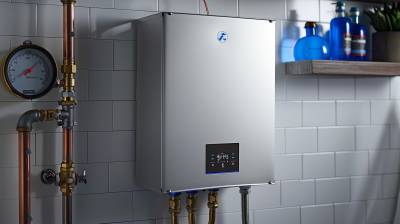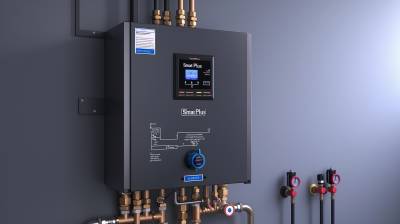The age-old question of how to improve your water heating system has largely been answered by innovations in technology, including the advent of the electric on demand water heater. Unlike traditional water heaters that continuously heat your water supply and waste energy, electric on-demand water heaters only heat water when desired or needed, hence the name 'on-demand'. In this blog post, we delve into the details of electric on-demand water heaters, what they are, how they work, their benefits, installation procedures and much more. There is a growing emphasis on energy efficiency in all aspects of our lives; therefore, this blog might be your guide to a more energy-efficient home through the use of electric on-demand water heaters.
The Basics of Electric On-demand Water Heaters
Electric on-demand water heaters, also known as instant or tankless water heaters, work by directly heating water without the use of a storage tank. When a hot water tap is turned on, cold water travels through a pipe into the unit where an electric element heats the water. As a result, on-demand water heaters deliver a constant supply of hot water without the need to wait for a storage tank to fill up with enough hot water.
How Electric On-Demand Water Heater Works
Understanding how an electric on-demand water heater works is not as complicated as it might sound. When you turn on the hot water tap, water enters the unit and activates the heater, which houses the electric heating elements. These elements quickly heat up the water as it passes through, and it comes out of the faucet hot. The unit will continue heating water as long as the tap is in operation. When the tap is turned off, the water flow stops, and the unit shuts down.
Benefits of Electric On-Demand Water Heaters
-
Energy Efficiency: One of the key benefits of electric on-demand water heaters is their energy efficiency. They use power only when hot water is needed, and this can result in significant energy savings.
-
Space Saving: Unlike traditional water heaters with large storage tanks, on-demand water heaters are compact and require less space. This makes them an excellent choice for smaller homes or apartments.
-
Unlimited Hot Water: With an electric on-demand water heater, hot water will never run out as long as there is a cold water supply.
-
No Standby Heat Loss: Traditional water heaters are subject to standby heat loss, as they have to keep the water in the tank hot at all times. This is not a concern with on-demand water heaters.
Maintenance Aspects of an Electric On-Demand Water Heater
For longer life and high efficiency, regular maintenance of an electric on-demand water heater is crucial. Regular descaling, checking for leaks, and inspecting heating elements for signs of wear are recommended. Repairs should always be carried out by qualified professionals to extend the life span of the unit and to keep it working efficiently.
Choosing the Right Electric On-Demand Water Heater
There are several factors to keep in mind when selecting an electric on-demand water heater for your home. Consider the size of your home, the amount of hot water you typically use, and the water's hardness in your area. Depending on your home's layout and demands, you may need more than one unit. You should also pay close attention to the energy-efficiency ratings of different models, as well as warranties provided by manufacturers.
Installation of an Electric On-Demand Water Heater
Installation of an electric on-demand water heater should, preferably, be done by a qualified professional. This is because it might involve the modification of home wiring, circuit breaker upgrades, and the installation may need to meet local building codes. It's always best to trust the installation to trained professionals to ensure safety and efficiency.
In conclusion, the electric on-demand water heater offers an efficient and suitable alternative to traditional water heaters. By understanding the basics, benefits, maintenance aspects, and installation process, you can make an informed decision about whether these modern, efficient appliances are right for your home.
On-Demand Electric Water Heater Frequently Asked Questions
How do on-demand electric water heaters function?
On-demand electric water heaters, also known as tankless water heaters, heat water directly without the use of a storage tank. When a hot water tap is turned on, cold water travels through a pipe into the unit. A heating element inside the water heater then cranks out heat to warm the water instantaneously, supplying a constant stream of hot water.
How energy-efficient are these heaters?
On-demand electric water heaters can be significantly more energy-efficient compared to traditional storage tank water heaters. The energy savings come from not having to continuously heat a tank of water, which can help reduce utility bills.
How much water can it heat at once?
Electric on-demand water heaters do not have a finite amount of water they can heat at once, instead, the limitation is usually how much can be heated per minute. This will largely depend on the model and manufacturer, but majority of the units can heat 2-5 gallons per minute.
Is a professional needed to install an on-demand electric water heater?
Although it is feasible for a skilled DIYer to install an on-demand electric water heater, it's generally recommended to hire a professional who can assess your home’s electrical system and ensure it can support the large electrical load the unit will require.
How quickly will they provide hot water?
On-demand electric water heaters are designed to provide hot water almost instantly. After turning on the hot tap, it typically takes a few seconds to a minute for the water to reach your desired temperature.
Can the electric on-demand water heater supply multiple faucets at once?
It depends on the capacity and the model of your electric on-demand water heater. Some units can handle supplying multiple points of usage concurrently, while others are designed for single-point use. It's important to understand your hot water needs before deciding which heater to install.
What is the lifespan of an electric on-demand water heater?
Electric on-demand water heaters typically last longer than traditional storage tank water heaters. With right maintenance, most models last for up to 20 years, almost double the lifespan of their tank counterparts.
Does my home's electrical system need to be upgraded?
This highly depends on your current home's electrical system and the particular model of electric on-demand water heater. Some models may require a significant electric service upgrade, requiring professional evaluation.
What maintenance does an electric on-demand water heater require?
Generally, on-demand electric water heaters require less maintenance than storage water heaters. It’s a good idea to inspect your unit once a year for any leaks or electrical issues. Depending on your water's hardness, descaling might be needed every few years to prevent buildup and maintain efficiency.
Are electric on-demand water heaters cost-effective?
While electric on-demand water heaters are usually more expensive upfront than traditional tank heaters, they can prove to be cost-effective in the long term. They use less energy, require fewer repairs, and have a longer lifespan, which when combined can result in significant savings over time.
Are there any safety concerns with using an electric on-demand water heater?
Modern electric on-demand water heaters come with several safety features such as overheat protection and safety shut-offs. However, as with any appliance involving electricity and hot water, safe installation and operation are important. Ensure your unit is installed by a professional and follow the manufacturer's guidelines in terms of use and maintenance.
Pros and Cons of Electric On-Demand Water Heaters
Pros of Electric On-Demand Water Heaters
Energy Efficiency
-
Electric on demand water heaters consume less energy compared to traditional water heaters as they only heat water when needed.
-
They typically demonstrate an energy efficiency of 98-99%, reducing your carbon footprint and helping you save on energy costs.
Unlimited Hot Water Supply
- Unlike traditional water heaters that store hot water in a tank, electric on-demand water heaters heat water instantly as it flows through the unit. Therefore, it does not run out of hot water as long as there's water flowing through it.
Space-Saving Design
- Since they do not require a large tank to store water, electric on demand water heaters are compact. They can be wall-mounted, saving crucial floor space in your home.
Longer Lifespan
- Compared to traditional water heaters that last about 10-15 years, on-demand water heaters often have a lifespan of 20 years or more, given correct maintenance.
Reduced Standby Energy Loss
- As on-demand water heaters only heat water as-needed, there's minimal standby energy loss, improving overall energy efficiency even further.
Cons of Electric On-Demand Water Heaters
Higher Upfront Costs
- On-demand electric water heaters are usually more expensive to purchase and install than traditional water heaters. This initial investment can be a considerable hurdle for some homeowners.
May Require Substantial Electrical Upgrades
- Since electric on-demand water heaters have high power requirements, some homes may require an electrical system upgrade, which adds to the overall installation cost.
May Not Suit High Usage Demands
- If multiple outlets require hot water simultaneously, an electric on-demand water heater may not keep up with the demand, especially in larger homes.
Limited Output
- Most electric on demand water heaters can only heat a certain amount of water at a time. Thus, during peak demand times, there may be an insufficient hot water supply.
Requires Regular Maintenance
- To ensure their longevity, electric on-demand water heaters need to be descaled regularly. Especially in areas with hard water, mineral scale buildup can affect the efficiency, causing complete heater failures if not addressed promptly.
Summary
The convenience and efficiency of an electric on-demand water heater have made it an increasingly popular choice for many homes. It's perfect for families who want to cut down on their energy consumption or for people who don't have room for a large tank. Plus, who doesn't love the idea of never running out of hot water again? So, if you're thinking about a water heater upgrade, an electric on demand model could genuinely make a difference.
Many people appreciate the space-saving aspect of an electric on-demand water heater, as well as the lower energy bills each month. Because it heats water only as needed, this heater is not constantly consuming power, unlike traditional water heaters. It's an environmentally-friendly option that doesn't compromise on comfort and convenience. Upgrade to an electric on-demand water heater, and you'll soon realize why these models are becoming more popular every day.
Not only does an electric on demand water heater provide instant hot water, but it's also quite easy to maintain. With no tank to stress over, the worries of leaks or damages are significantly minimized. A sure fit for modern living, it keeps your showers warm and your peace of mind intact. Making a change to an electric on-demand water heater is a practical decision that offers comfort, convenience, saves money, and is great for the environment too.
About West Coast Hydronics & Plumbing
Welcome to West Coast Hydronics & Plumbing! We're a professional, full-service plumbing and hydronics company headquartered in picture-perfect Sacramento, California. With countless years of experience in the field, our dedicated team of experts is committed to providing top-quality service and unrivaled expertise to our valued clients. Whether you're dealing with a minor leak or need a full-scale plumbing installation, we're your go-to solution. To learn more about us and our services, please click here.







